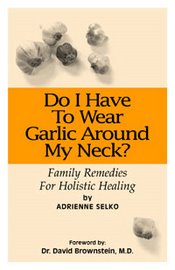While the effects of pesticides have been studied as it relates to a number of illnesses this is one of the first times that it is being linked to ADHD.
CNN reports that researchers measured the levels of pesticide byproducts in the urine of 1,139 children from across the United States. Children with above-average levels of one common byproduct had roughly twice the odds of getting a diagnosis of ADHD, according to the study, which appears in the journal Pediatrics.
Organophosphates, which are pesticides, are "designed" to have toxic effects on the nervous system, says the lead author of the study, Maryse Bouchard, Ph.D., a researcher in the department of environmental and occupational health at the University of Montreal. "That's how they kill pests."
The pesticides act on a set of brain chemicals closely related to those involved in ADHD, Bouchard explains, "so it seems plausible that exposure to organophosphates could be associated with ADHD-like symptoms."
So where are kids being exposed to these pesticides. Their food. Hold onto your hat for these next statistics. When the US Department of Agriculture tested some fruits and vegetables in 2008 here is what they found.
Traces of pesticides were found in:
28% of frozen blueberries
20% of celery
25% of strawberries
27% of green beans
17% of peaches
8% of broccoli
To summarize the research, children ( ages 8-15) were examined for six chemical byproducts (known as metabolites) that result when the body breaks down more than 28 different pesticides. Nearly 95% of the children had at least one byproduct detected in their urine.
One group of pesticide byproducts was associated with a substantially increased risk of ADHD. Compared with kids who had the lowest levels, the kids whose levels were 10 times higher were 55%t more likely to have ADHD. (Another group of byproducts did not appear to be linked to the disorder.)
In addition, children with higher-than-average levels of the most commonly detected byproduct -- found in roughly 6 in 10 kids -- were nearly twice as likely to have ADHD.
"It's not a small effect," says Bouchard. "This is 100% more risk."
skip to main |
skip to sidebar
A friendly easy-to-use guide to learning about natural ways to stay healthy. This blog will give you specific things you can do today to start on your journey. It will also talk about a variety of natural methods and ideas.
Purchase Book
About Me
- Adrienne Selko
- Author of "Do I Have To Wear Garlic Around My Neck: Family Remedies for Holistic Healing, a Plain Dealer Best Seller. Former host of radio program and columnist on holistic health.
Labels
- Acupunture (5)
- ADHD (1)
- Allergies (3)
- Aromatherapy (1)
- Asthma (1)
- Beauty Tips (2)
- Blood Pressure (2)
- Bone Health (1)
- Breast Cancer (2)
- cancer (1)
- Cerebral Palsy (1)
- Children's Health (17)
- Cholesterol (2)
- Colds (9)
- Dementia (1)
- Depression (4)
- Diabetes (2)
- Dry Skin (1)
- Essential Oils (2)
- Exercise (22)
- Feng Shui (1)
- Fever (1)
- Flower Remedies (1)
- Food (1)
- friendship (1)
- Garlic (1)
- Headaches (3)
- Heart Health (12)
- Herb (2)
- Herbs (11)
- Home Remedies (29)
- Homeopathy (2)
- hormones (1)
- Immune Support (1)
- Joint Pain (2)
- Meditation (1)
- Memory Loss (1)
- Mental Health (6)
- modalities (1)
- MS (1)
- Music Therapy (1)
- Natural Therapies (3)
- Naturally Clean Home (2)
- Nutrition (88)
- Nutrition - Wine (3)
- Organic Foods (1)
- Outlook on Life (25)
- Pets (2)
- Prayer (1)
- Problems (1)
- Reiki (1)
- Respiratory Issues (1)
- Safety Issues (10)
- Sinus (1)
- Sinus Problems (1)
- Stress (6)
- Stress Reduction (8)
- Teenage Health (1)
- Vitamin (1)
- Vitamins (20)
- Weight Loss (10)
- Women's Health (6)


